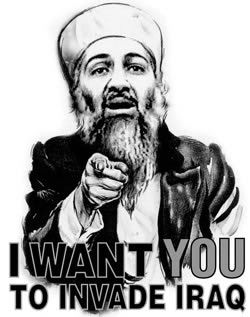| Remember When...
War Sunny Side Up (This is something I’ve written and amended since April 4th. This, of course, was during “major combat operations”. As for those of you who criticized me for my unpatriotic skepticism at the time, I will graciously accept your mea culpas.) If you trust any statement made by an “unnamed Administration Official” or any spokesperson for the U.S. Military without confirmation from an independent media source, you’ll be played for a chump until Bush is booted out of office). Perhaps the most poignant, touching episode reported by the media as of yet was the rescue of Private Jessica Lynch. On Tuesday, April 1st, 2003 Brigadier Gen. Vincent Brooks tersely informed the world she had been rescued and returned to a coalition-controlled area. In the next few days, and incredible tale began to unfold. All but the most jaded and cynical, it seems, had discovered the human face of the war in the visage of Jessica Lynch and that of her Iraqi accomplice. A careful look back at the tale as it unfolded says a lot about the way the media covers the war, just as our response tells a great deal about us. Let’s take a step back and look at when Jessica’s name first appeared in the press… Immediately after the announcement on Tuesday evening, the celebration began in Palestine, West Virginia, Jessica’s ironically-named hometown. While the press covered the jubilant town’s response to the good news, they were also quick to point out the role of the CIA in providing information crucial to the rescue. “The CIA, which has played a significant role in finding targets for the military and has liaisons in every major military command involved in the war in Iraq, identified Lynch's location and fed the geographical coordinates to U.S. Central Command, a U.S. official said. That allowed the Special Operations rescue team -- which is on 24-hour standby in a nearby Persian Gulf country -- "to swoop down quickly" and rescue her, the official said”. Although this article was primarily about the reaction of Palestine to the rescue of a favorite daughter, there were dark undertones. The article also briefly mentioned that 10 bodies were also recovered from the hospital, and some were most likely American. By Thursday, the Washington Post’s Peter Baker, in time for NBC’s Thursday night lineup, succeeded in sweeping the bodies under the rug, and his front-page story contained absolutely no mention of any soldier other than Private Lynch. He does, however, introduce another character into the drama, a 32 year-old Iraqi lawyer referred to only by his first name, who, despite placing himself and his family in great danger, provided U.S. soldiers with the information necessary to retrieve Private Lynch. His motivation: pity. His guiding philosophy: we’re all part of the human family. As he explained to Mr. Baker, “"A person is a human being regardless of nationality…"Believe me, I love Americans."” As the story goes, Mohammed was in the hospital visiting his wife. While he was there, he heard of the American prisoner, and convinced a doctor to let him see her. The Post article reads: Inside the room with her was an imposing Iraqi man, clad all in black. Mohammed watched as the man slapped the American woman with his open palm,then again with the back of his hand. In that instant, Mohammed recalled today, he resolved to do something. After the man in black left, Mohammed sneaked in to see the young woman. "Don't worry, don't worry," he told her. He was going for help. And help he did. According to the news account, He risked his life obtaining the information that enabled the rescue: As he skulked around, he counted the number of Fedayeen at the hospital, until he came to 41. He noted that four guards in civilian clothes stood watch at Lynch's first-floor room armed with Kalashnikov assault rifles and radios. He traced routes through the building that commandos could use. Mohommed, apparently, is a very sensitive, observant, and wily man. After all, it would take quite a bit of effort to bypass the 4 Fedayeen posted outside the room, the 41 tromping around in the hospital, and the man in black slapping the prostrate Private Lynch. Is it just me, or is anyone else’s bulls**t detector ringing like crazy? |

Read How Bush Helped Osama Recruit Here

Lies That Led To War: Read The WMD B.S. Here
Under Construction
construction
construction ...
text
text
Photo...
News And Commentary
- Media Matters for America
- Cursor
- The Guardian
- Goderich Signal Star
- The Strib
- The Toronto Star
- The Poutine Diaries
- 917 Press
- Manufactured Environments
- Journal of Genki
- Rick and Heather
- Jason Coleman
- Paperback Writers
- andtheansweris
Noteworthy & Quoteworthy:

Comments on ""
post a comment